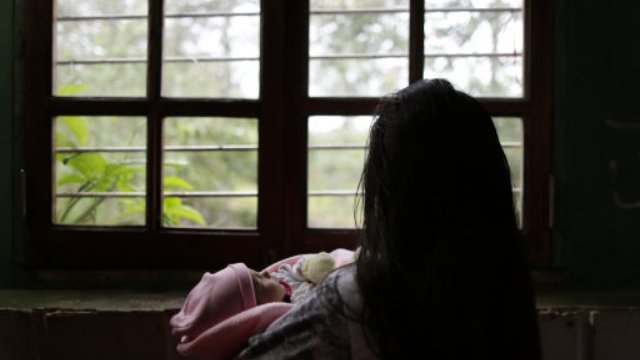Inquiry hears boy died after beating from nun
28 November 2017, 15:37 | Updated: 28 November 2017, 15:38

A six-year-old boy died 10 days after he was beaten by a nun at an orphanage, a child abuse inquiry has heard.
A witness, who cannot be named, told the inquiry his friend was kicked on the body and head by the Catholic sister.
He was giving evidence at the Scottish Child Abuse Inquiry which began the second phase of its hearings in Edinburgh on Tuesday.
It is hearing evidence about institutions run by the Daughters of Charity of St Vincent de Paul.
The man said he was sexually abused by a nun and another member of staff and beaten for bedwetting and not eating his food at Smyllum Park orphanage in Lanark, Lanarkshire.
The witness entered the orphanage in 1959 when he was aged around two, along with three brothers and a sister.
He said that beatings at the institution were routine, and that on one occasion when he was aged around six his friend was beaten after playing with a match and accidentally burning his hand.
He said: "It was unfortunate but at that time the sister came around the corner and said what's wrong and I said 'he burned my hand' and she just grabbed him and started hitting him and punching him.
"He was on the floor and she was kicking him on his body and his head.
"I said 'please sister, please don't hurt him'.
"She stopped when I lay on top of him."
He said he next saw his friend in the sick room and the inquiry heard the boy was in hospital for around 10 days before he died.
A BBC and Sunday Post investigation earlier this year found that at least 400 children from Smyllum Park are thought to be buried in an unmarked grave at the town's St Mary's Cemetery.
The orphanage was home to more than 10,000 children between opening in 1864 and closing in 1981.
Prosecutors have said there is no evidence that a crime has been committed at the orphanage in relation to reports of the mass grave.
The witness also told how he was sexually abused by a nun who took him to her room and rubbed his penis with her thumb while talking to him about bedwetting.
He also described abuse by a lay female member of staff.
The witness said: "She took me up to the bedrooms to help change the beds.
"She sat on the bed and opened her legs and she had a split in her ski pants and she told me to get my penis out, put it in there and go in and out.
"I cannot remember any penetration.
"She lay back on the bed and just said keep going in and out."
He told how children who wet the bed were made to stand with the wet sheets round their neck in the morning, and were also hit for bedwetting.
In August 1965 when he was aged around seven the witness said he was moved to St Vincent in Newcastle, which was run by the same order of sisters, and told how he encountered abuse there too.
Colin MacAulay QC, counsel to the inquiry, said: "In your statement you go on to say it was another place run by psychopaths."
The witness said: "We had to go to the washrooms and I must have said something out of line, she pinned me up against the wall with her forearm with a bread knife to my throat threatening to kill me and I genuinely thought I was going to die then, I was screaming."
More than 60 residential institutions, including several top private schools, are being investigated by the inquiry, chaired by Lady Smith.
In opening statements to the inquiry on Tuesday morning John Scott QC, senior counsel for In Care Abuse Survivors (Incas), said the name Smyllum will be "forever associated with suffering".
He said: "Just how could abuse of such extent and duration occur without knowledge, especially given how closely knit a community the place was?
"Either people knew because they were involved or they knew and did nothing to stop it or nobody took time to find out what life was like in this showpiece home.
"The Smyllum way became shorthand for wicked abuse.
"The Smyllum way did not involve only one or two abusers, it involved many abusers and took place over decades.
"It seems to have been part of the institutional memory of the place."
Solicitor Gregor Rolfe, counsel for the Daughters of Charity, reiterated the apology made by the order at the conclusion of the first phase of the inquiry.
Their statement said: "As Daughters of Charity our values are totally against any form of abuse and thus we offer our most sincere and heartfelt apologies to anyone who suffered any form of abuse in our care."
Mr Rolfe also said that since the end of the first phase of the inquiry a former lay member of staff has come forward with an allegation that a man volunteering at Smyllum abused two brothers in the 1970s.
The allegation has now been reported to police but did not appear to be investigated at the time, with no record of any investigation.
Mr Rolfe said: "There was a failure on the part of the order for which they apologise unreservedly.
"There was also no contemporaneous report of the allegation to the police.
"The order offers since and heartfelt apologies."






